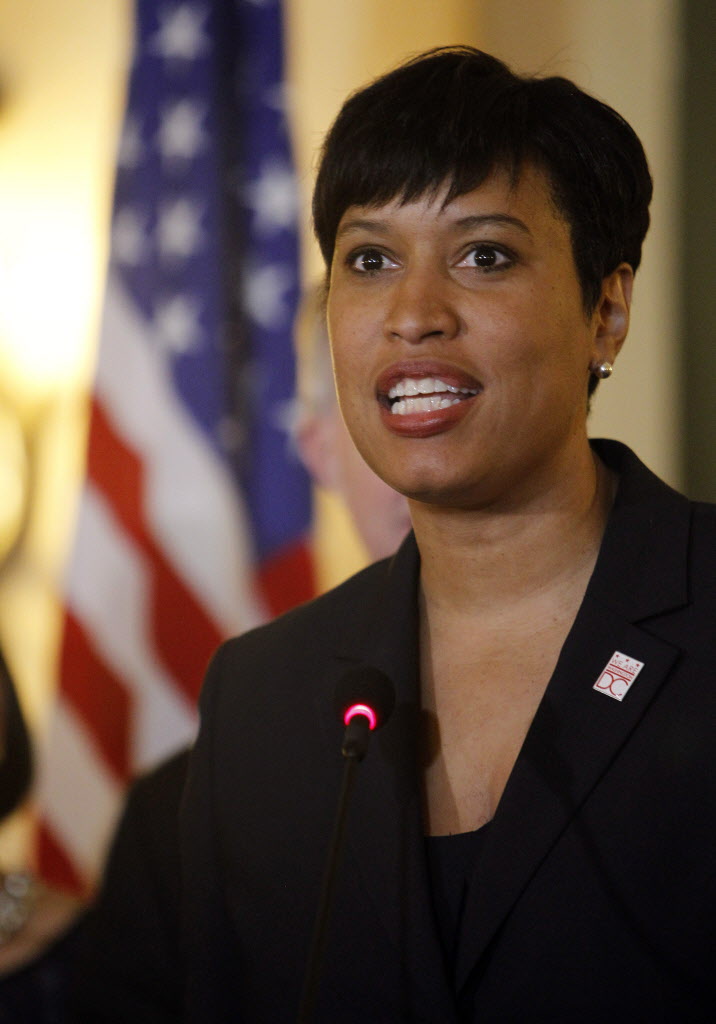WASHINGTON — The mayor of the District of Columbia reiterated Friday that the city should become the country’s 51st state, with a local vote proposed on the November ballot.
“We will not stop until we achieve full statehood,” Mayor Muriel Bowser said Friday at the Willard Hotel while recognizing Emancipation Day.
Nearly three in four residents say they are “very upset” the District has no voting representation on the floor of the House or Senate, with D.C. laws and budgets subject to congressional approval, according to a November poll by The Washington Post.
![The District deserves a vote in Congress and full rights of citizenship, and th [oembed : 83078434] [oembed : 83078434] [oembed : 83078434] [oembed : 83078434] [oembed : 83078434] [oembed : 83078434]](/Portals/_default/Skins/PrestoLegacy/CommonCss/images/smartembed.png)
The frustration for D.C. residents is that Congress can change the City Council's budget or impose its own policy legislation on hot-button issues such as restrictions on guns or marijuana.
Bowser said she would work this summer to place the statehood proposal on the city's ballot. But a variety of previous efforts to gain statehood have failed, including local referendums.
![This summer, we will propose legislation that will put statehood on the ballot i [oembed : 83078464] [oembed : 83078464] [oembed : 83078464] [oembed : 83078464] [oembed : 83078464] [oembed : 83078464]](/Portals/_default/Skins/PrestoLegacy/CommonCss/images/smartembed.png)
The U.S. Constitution gave Congress exclusive legislative authority over D.C. as the seat of federal government. Proposals over the years to alter that arrangement have included giving the district statehood, defining the district as a state to give it seats in the House and Senate, or making it part of Maryland.
In 1978, Congress sent a constitutional amendment to the states to treat the district as though it were a state, according to the Congressional Research Service. But the amendment expired in 1985 after being ratified by only 16 states, rather than 38 needed for adoption.
A high-profile effort in 2009 sought to give D.C. and Utah each a seat in the House, raising the total from 435 seats to 437. This political compromise was expected to create one Democratic seat and one Republican seat, after a Utah dispute with the 2000 Census. The Senate approved the bill, but the House ignored it.


![EPA CUBA USA DIPLOMACY POL DIPLOMACY CUB LA [image : 83078316]](http://www.gannett-cdn.com/media/2016/04/15/USATODAY/USATODAY/635963172750088674-BOWSER.JPG)
